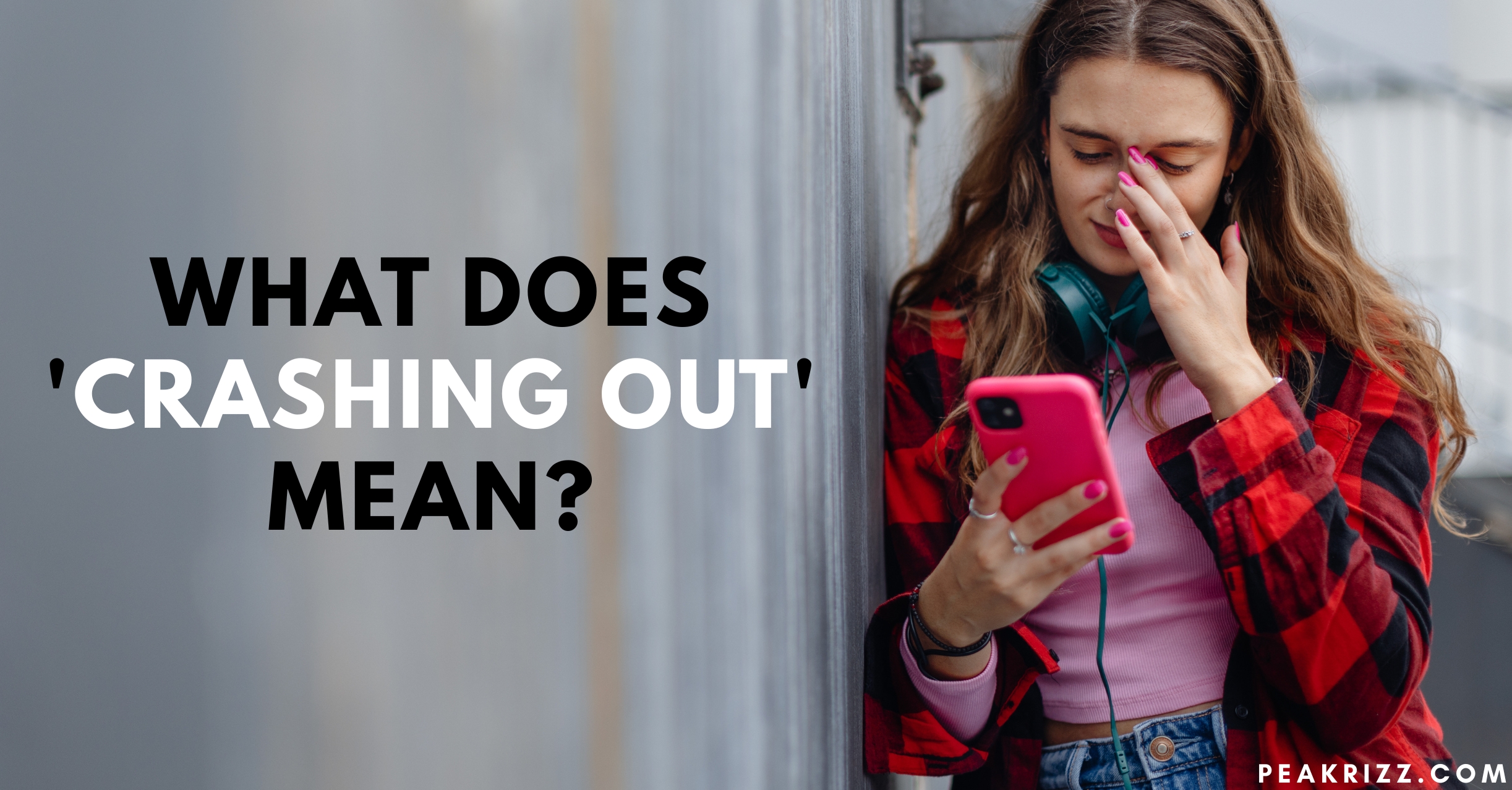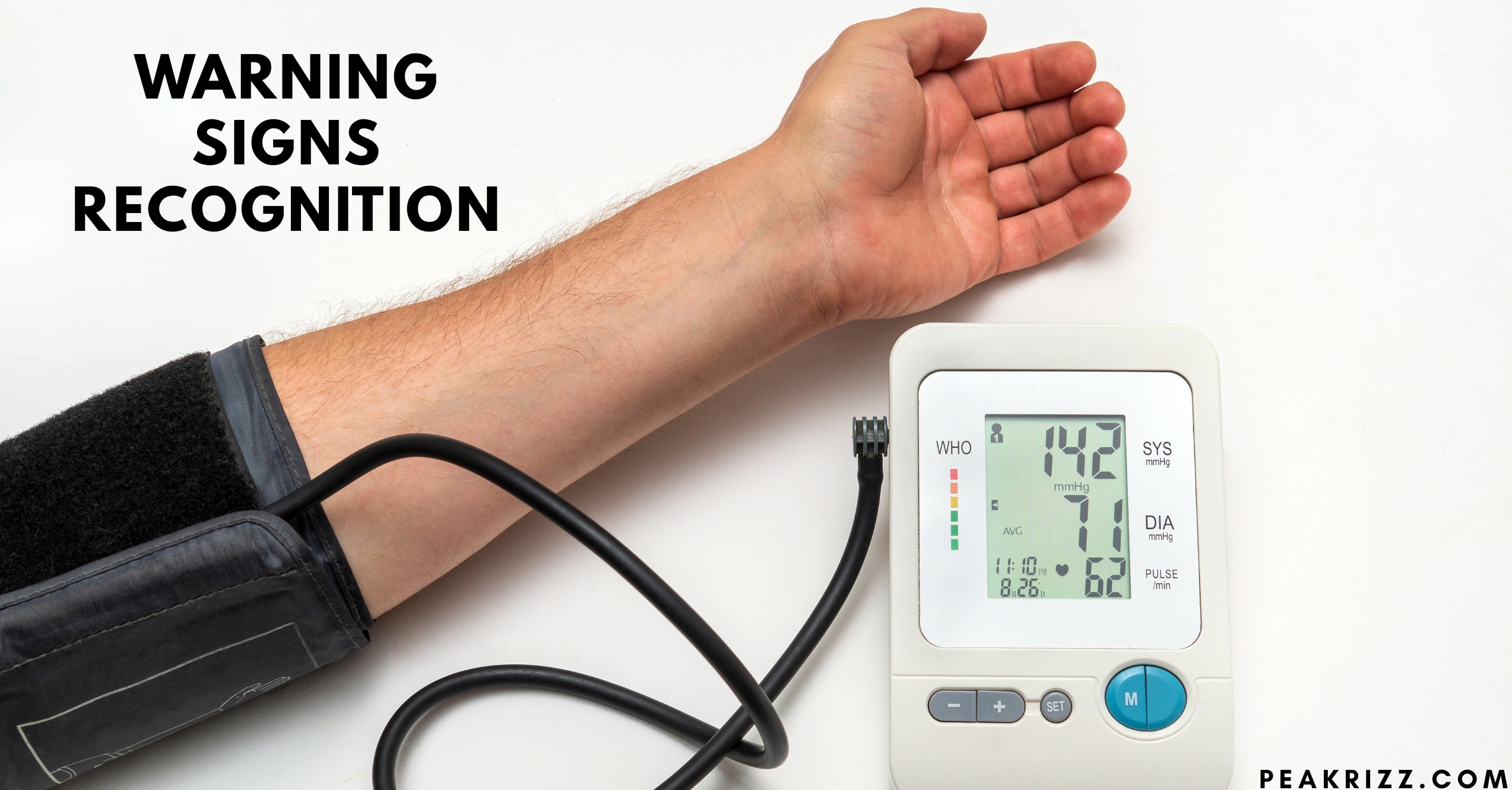The phrase “crash out” has exploded across social media platforms, leaving many people wondering about its true meaning. This comprehensive guide explores everything you need to know about this viral phenomenon.
What Does ‘Crashing Out’ Mean?

The crash out meaning has evolved dramatically from its original definition. Traditionally, this phrase simply meant falling asleep suddenly or collapsing from exhaustion. However, in 2025, the crash out definition represents something far more emotionally intense and psychologically complex.
Modern crash out slang describes losing complete emotional control during stressful situations. When someone crashes out, they abandon rational thinking and let overwhelming emotions drive their behavior completely. This isn’t just getting angry or upset.
“Crashing out represents a complete breakdown of emotional regulation systems, where individuals lose the ability to manage their responses to stressors,” explains Dr. Sarah Martinez, a clinical psychologist specializing in adolescent mental health at Stanford University.
The crash out idiom captures those moments when stress, frustration, or emotional pain reaches critical levels. People experiencing this phenomenon often act impulsively without considering consequences, potentially damaging relationships and opportunities.
| Traditional Meaning | Modern Slang Meaning |
| Falling asleep suddenly | Losing emotional control |
| Collapsing from exhaustion | Acting impulsively when overwhelmed |
| Sleeping somewhere temporarily | Complete breakdown of rational thinking |
Where Does “Crashing Out” Come From?
Understanding the crash out phrase meaning requires exploring its cultural and linguistic origins. This expression emerged from African American Vernacular English (AAVE) before gaining mainstream popularity through social media platforms like TikTok and Instagram.
The transformation occurred rapidly between 2022 and 2024, as Gen Z users began sharing videos about their emotional experiences. The crash out meaning TikTok phenomenon helped propel this term from niche community slang into everyday vocabulary across diverse demographics.
Social media platforms created perfect environments for this linguistic evolution. Young people needed precise vocabulary to describe intense emotional experiences that previous generations might not have named explicitly. The crash out meaning Gen Z represents this generation’s approach to mental health awareness.
- AAVE origins in urban communities
- Social media amplification starting in 2022
- Mainstream adoption by 2024
- Cultural appropriation concerns and respectful usage guidelines
What Happens When You Crash Out?
When someone experiences a crash out episode, several distinct physical and psychological patterns emerge. The crash out explanation involves understanding both immediate responses and longer-term consequences that affect multiple life areas.
Physically, crashing out manifests through rapid heartbeat, muscle tension, tunnel vision, and overwhelming urges to react immediately. These responses represent your body’s emergency systems activating inappropriately for the situation’s actual threat level.
The crash out meaning relationship context becomes particularly complex and damaging. Partners, friends, or family members often become targets during these episodes. Someone might crash out on someone meaning they direct their emotional overwhelm toward that specific person, potentially causing lasting relationship damage.
Immediate Physical Signs:
- Rapid heartbeat and elevated blood pressure
- Muscle tension and clenched fists
- Tunnel vision focusing on triggers
- Loss of fine motor control
Psychological Responses:
- Complete abandonment of logical reasoning
- Inability to consider long-term consequences
- Hyperfocus on perceived threats
- Temporary loss of empathy
Academic Pressure Triggers

Modern educational systems create intense environments where students feel constant pressure to excel academically. College admissions have become increasingly competitive, with students juggling advanced coursework, extracurricular activities, and standardized test preparation simultaneously.
Student debt anxiety compounds these academic pressures significantly. Young people observe education costs skyrocketing while job market uncertainty makes future financial stability questionable and stressful.
“The pressure cooker environment of modern education systems, combined with social media comparison culture, creates perfect conditions for emotional dysregulation among students,” notes Dr. Michael Chen, professor of developmental psychology at UCLA.
Performance expectations from parents, teachers, and peers often exceed individual capacity for stress management. When these expectations become overwhelming, students frequently experience crash out episodes that affect their academic performance and personal relationships.
| Academic Stressor | Impact Level | Common Crash Out Triggers |
| College Applications | Very High | Rejection letters, deadlines |
| Student Debt Concerns | High | Financial aid decisions |
| Grade Pressure | High | Poor test scores, GPA drops |
| Competition | Medium | Peer comparisons, rankings |
High Living Expenses Impact
Economic pressures significantly contribute to crash out incidents among young adults navigating today’s challenging financial landscape. Housing affordability has reached crisis levels in many American cities, forcing people to work multiple jobs or live in substandard conditions.
The gap between wages and living costs creates chronic stress that builds over time. When someone spends 50-60% of their income on rent alone, any additional financial stress can easily trigger a crash out response.
Young adults face unprecedented financial challenges compared to previous generations. Rising costs for housing, healthcare, education, and basic necessities create constant background stress that affects daily mental health and emotional stability.
Financial Stress Factors:
- Housing costs consuming majority of income
- Student loan payments delaying life milestones
- Healthcare expenses creating debt
- Transportation and utility cost increases
Global Instability Effects
Today’s young people navigate unprecedented levels of global uncertainty and instability. Climate change anxiety, political polarization, and international conflicts create background stress that significantly affects daily mental health and emotional regulation.
Social media amplifies these global concerns, making distant problems feel personally overwhelming and immediate. The constant stream of negative news creates what psychologists term “headline stress disorder” among vulnerable populations.
Climate anxiety affects 60% of young adults according to recent studies. Political tensions and social justice issues add additional layers of stress. When someone already feels emotionally vulnerable, exposure to disturbing global events can easily trigger crash out episodes.
The 24/7 news cycle means young people rarely escape from global stressors. This constant exposure creates cumulative stress effects that build over time until relatively minor personal issues become overwhelming triggers.
Social Media Influence
The crash out meaning TikTok phenomenon illustrates how digital platforms both document and potentially encourage these emotional breakdowns. Social media creates several specific crash out triggers that didn’t exist for previous generations.
Comparison culture makes everyone’s highlight reels visible, creating unrealistic expectations about success, relationships, and happiness levels. When reality doesn’t match these curated presentations, people might crash out from feelings of inadequacy and failure.
Cyberbullying and online drama can escalate quickly, pushing vulnerable individuals toward crash out responses. The permanence and public nature of digital conflicts amplify their emotional impact significantly beyond traditional interpersonal conflicts.
FOMO (Fear of Missing Out) creates anxiety about not experiencing enough, achieving enough, or being included enough in social activities. This constant comparison overwhelms emotional regulation systems, especially among adolescents and young adults.
| Social Media Trigger | Frequency | Impact on Mental Health |
| Comparison Posts | Daily | Very High |
| Cyberbullying | Weekly | Extreme |
| FOMO Content | Multiple Daily | High |
| Negative News | Constant | Medium-High |
Family Dynamics Challenges
Family relationships significantly influence crash out susceptibility across all age groups. Generational differences about technology use, career choices, and lifestyle decisions create ongoing tension within household dynamics.
Communication breakdowns within families leave young people feeling unheard and unsupported emotionally. Without healthy outlets for expressing frustration and disappointment, these emotions build pressure until they explode in crash out incidents.
Divorce, separation, and family instability create additional stress layers. Young people often feel caught between conflicting loyalties or inappropriately responsible for family problems they cannot realistically control or solve.
Family Stress Indicators:
- Frequent arguments about life choices
- Lack of emotional support or validation
- Financial stress affecting family dynamics
- Generational communication gaps
Trauma and Discrimination
Past traumatic experiences significantly increase crash out vulnerability among affected individuals. Unresolved trauma affects emotional regulation capabilities, making it much harder to manage current stressors effectively and appropriately.
Discrimination based on race, sexual orientation, gender identity, or other factors creates chronic stress that accumulates over extended time periods. The exhaustion of constantly navigating prejudice and microaggressions can lead to crash out responses when additional stressors emerge.
“Individuals with trauma histories often have hyperactive stress response systems, making them more susceptible to emotional dysregulation when facing current challenges,” explains Dr. Jennifer Rodriguez, trauma specialist at Johns Hopkins Medical Center.
Historical trauma also affects communities intergenerationally. Young people may carry stress responses inherited from parents and grandparents who experienced significant trauma, even without direct personal exposure to traumatic events themselves.
Warning Signs Recognition

Recognizing crash out warning signs helps prevent these episodes from escalating into damaging situations. Early intervention strategies prove much more effective than trying to manage full-blown crash out episodes after they begin.
Overwhelming emotional intensity represents the first major warning sign. Feelings become disproportionate to triggering events, with small annoyances feeling catastrophic and normal setbacks seeming completely insurmountable.
Physical tension including muscle tightness, headaches, and jaw clenching indicates building stress levels. Your body holds emotional pressure even when your conscious mind tries to ignore or minimize developing problems.
Sleep disruption patterns often precede crash out episodes. Insomnia, nightmares, or excessive sleeping significantly affect emotional regulation capabilities, creating vulnerability to emotional overwhelm situations.
| Warning Sign | Severity Level | Intervention Needed |
| Emotional Intensity | High | Immediate coping strategies |
| Physical Tension | Medium | Stress reduction techniques |
| Sleep Problems | High | Professional consultation |
| Social Withdrawal | Medium | Support system activation |
Acknowledge What’s Happening
Self-awareness forms the foundation of crash out prevention strategies. Regular emotional check-ins help you recognize building pressure before it becomes completely overwhelming and unmanageable.
Mindfulness practices develop this crucial awareness. Simple breathing exercises, body scans, or brief meditation sessions help you stay connected to your emotional state throughout daily activities and interactions.
Reality-testing techniques help maintain perspective during stressful situations. Before reacting emotionally, ask yourself whether this situation is as bad as it feels right now, and whether it will matter significantly in the future.
Self-Assessment Questions:
- What emotions am I feeling right now?
- What triggered these specific feelings?
- How intense are these emotions on a 1-10 scale?
- What does my body feel like currently?
Build in a Pause
Creating space between triggers and reactions prevents impulsive crash out responses from occurring. This pause doesn’t need to be lengthy, even a few seconds can make the difference between thoughtful response and emotional explosion.
Breathing exercises provide immediate stress relief capabilities. Try the 4-7-8 technique: inhale for 4 counts, hold for 7, exhale for 8. This activates your parasympathetic nervous system, naturally calming emotional intensity levels.
Physical movement helps process emotional energy constructively rather than letting it build internal pressure. Take a walk, do jumping jacks, or stretch your muscles. Movement prevents emotions from getting stuck in your body.
Grounding techniques anchor you in the present moment effectively. Try the 5-4-3-2-1 method: notice 5 things you can see, 4 you can touch, 3 you can hear, 2 you can smell, and 1 you can taste.
Express Anger Purposefully
Healthy anger expression prevents emotions from building to crash out levels. Instead of suppressing angry feelings completely, find constructive outlets that allow emotional processing without causing harm to relationships or situations.
Physical exercise channels aggressive energy safely and effectively. Boxing, running, or weightlifting can help discharge emotional intensity without directing it toward other people or destructive behaviors.
Creative expression transforms emotional energy into something productive and meaningful. Art, music, or writing can help you process difficult feelings while creating something positive from negative emotional experiences.
Assertive communication allows you to express needs and boundaries clearly without attacking others or suppressing your legitimate feelings and concerns.
| Expression Method | Effectiveness | Time Required |
| Physical Exercise | Very High | 20-30 minutes |
| Creative Arts | High | 30-60 minutes |
| Journaling | High | 10-15 minutes |
| Assertive Communication | Medium-High | 5-10 minutes |
Brain-Dump Journaling
Stream-of-consciousness writing helps externalize overwhelming thoughts and emotions effectively. Set a timer for 10-15 minutes and write continuously without editing or censoring yourself during the process.
Brain-dump journaling creates safe space for processing intense emotions without judgment or external consequences. Many people find this technique particularly helpful during crash out vulnerability periods.
Journaling Benefits:
- Emotional pressure release
- Pattern recognition in triggers
- Problem-solving clarity
- Stress reduction
- Self-understanding development
Set Micro-Boundaries
Small boundary-setting prevents overwhelm from accumulating over time. These micro-boundaries are easier to maintain than major life changes while providing significant stress reduction benefits for daily life management.
Energy protection involves limiting exposure to negative people, situations, or media content that drain your emotional resources unnecessarily. Creating quiet time for yourself daily helps maintain emotional equilibrium.
Digital boundaries include limiting news consumption to specific times, taking social media breaks when feeling vulnerable, and turning off notifications during rest periods or focused work time.
Professional Support Options
Professional help becomes necessary when crash out episodes significantly impact your life functioning. Warning signs include multiple weekly episodes, relationship damage, legal consequences, or inability to function at work or school effectively.
Individual therapy helps develop personalized coping strategies. Cognitive Behavioral Therapy (CBT) changes thought patterns, while Dialectical Behavior Therapy (DBT) focuses on emotional regulation skills development.
Group therapy provides peer support and accountability from others facing similar challenges. Family counseling addresses relationship dynamics and teaches family members how to provide effective support during difficult periods.
Crisis resources include hotlines, emergency services, and intensive outpatient programs for immediate support during severe episodes or when safety becomes a concern.
| Treatment Type | Duration | Effectiveness | Best For |
| Individual Therapy | 6-12 months | Very High | Personal coping skills |
| Group Therapy | 3-6 months | High | Peer support needs |
| Family Counseling | 3-9 months | High | Relationship issues |
| Crisis Intervention | Immediate | High | Emergency situations |
Control Strategies
When you feel a crash out episode beginning, immediate intervention strategies can prevent complete escalation. Emergency coping skills include removing yourself from triggering situations physically and using cold water to reset your nervous system.
Support system activation involves calling trusted friends or family members who understand your triggers and can provide perspective during difficult moments. Having accountability partners helps maintain emotional regulation goals.
The STOP technique provides structured intervention: Stop current activity, Take a breath, Observe what’s happening, Proceed mindfully with conscious choice rather than reactive impulse.
Professional Resources:
- 24/7 Crisis Hotlines for immediate support
- Mental Health Apps for guided coping strategies
- Emergency Contacts list easily accessible
- Therapy Appointments for ongoing support
Newport Institute Treatment
Newport Institute offers specialized programs addressing crash out behavior within comprehensive mental health treatment frameworks designed specifically for young adults and adolescents.
Intensive Outpatient Programs allow young people to maintain daily routines while receiving specialized support for emotional regulation challenges. These programs combine evidence-based therapy with practical life skills training.
Residential treatment options address severe cases where crash out episodes pose safety risks or significantly impair daily functioning. Family therapy approaches help repair relationships damaged by emotional dysregulation patterns.
The programs combine trauma-informed care, recognizing how past experiences contribute to current emotional volatility, with holistic healing methods that address root causes rather than just managing surface symptoms.
Teen Slang Evolution
Understanding crash out meme culture requires familiarity with related Gen Z expressions. Terms like “no cap” (no lie), “periodt” (end of discussion), and “it’s giving” (it seems like) often appear alongside crash out discussions on social media platforms.
The evolution of emotional expression in youth slang reflects changing attitudes toward mental health awareness. Words like “triggered,” “toxic,” and “gaslighting” have moved from clinical settings into everyday conversation among young people.
“Crash out or erase” represents choices young people face when dealing with intense emotions. Either lose control completely or try to suppress feelings entirely. Neither option provides healthy emotional regulation strategies.
Other viral terms include “main character energy” (confident self-focus), “no thoughts head empty” (mental exhaustion), and “touch grass” (get offline and reconnect with reality). These expressions create vocabulary for experiences that previous generations might not have named explicitly.
Frequently Asked Questions
What does “crashing out” slang mean?
Crashing out means losing emotional control suddenly, becoming extremely angry or distressed, often leading to impulsive, regrettable actions or destructive behaviors.
What does it mean if you crash out?
If you crash out, you’ve experienced an emotional breakdown where rational thinking stops and intense feelings drive destructive or self-sabotaging behavior patterns.
Does crashing out mean crying?
Crashing out doesn’t necessarily mean crying; it refers to any loss of emotional control, including anger, rage, destructive behavior, or emotional overwhelm.
Why do I crash out so much?
Frequent crashing out indicates unmanaged stress, poor coping skills, underlying mental health issues, or overwhelming life pressures requiring professional support and intervention.
What does slang crash out mean?
In slang, crash out means experiencing a complete emotional meltdown, losing self-control, and acting impulsively without considering consequences or impacts on others.
What does it mean if you crash out?
Crashing out means your emotional regulation system has failed, leading to intense reactions that are disproportionate to the triggering situation or circumstances.
What does “we crashed out” mean?
“We crashed out” means a group collectively lost emotional control, made poor decisions together, or experienced a shared emotional breakdown affecting multiple people.
What does “Crash Out” mean in slang in 2025?
In 2025, crash out means sudden emotional breakdown with loss of self-control, popularized through social media platforms and Gen Z cultural expressions.
Conclusion
Understanding crash out meaning in 2025 helps navigate modern emotional challenges effectively. This Gen Z phenomenon reflects our high-stress society where young people face unprecedented pressures. Recognizing warning signs, implementing prevention strategies, and seeking professional support creates healthier responses to life’s challenges.
More Post:

Passionate about innovation and growth. Dedicated to managing, optimizing, and creating seamless experiences while supporting diverse content and users with professionalism and clarity every day.








